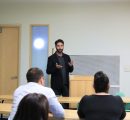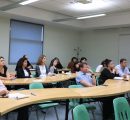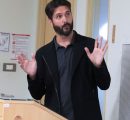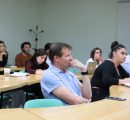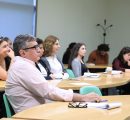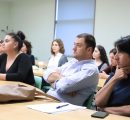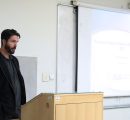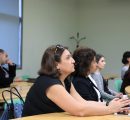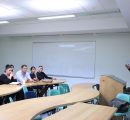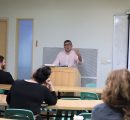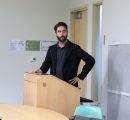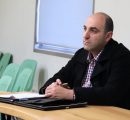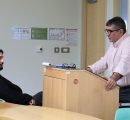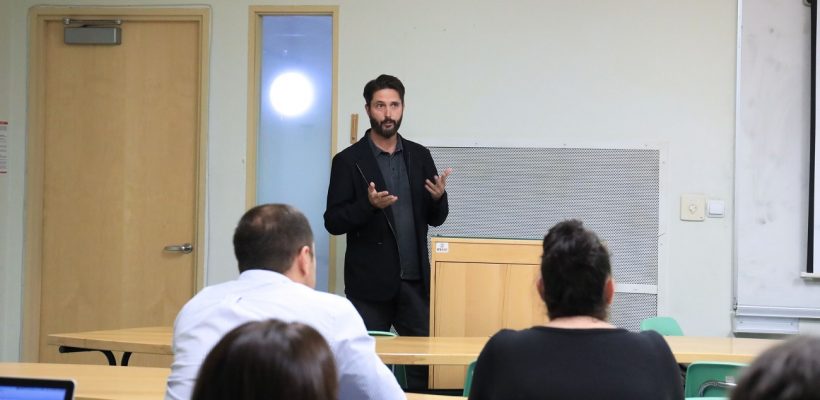
Persistent Organic Pollutants: Focus on Polychlorinated Biphenyl
2 min readYEREVAN, Armenia – On October 15, 2018, the American University of Armenia’s (AUA) Acopian Center for the Environment organized a public talk titled “Persistent Organic Pollutants (POPs): Focus on Polychlorinated Biphenyl (PCB).” The talk was given by Rayford B. Payne, Ph.D., Assistant Research Scientist, Institute of Marine and Environmental Technology, University of Maryland Baltimore County.
Under the supervision of Dr. Kevin R. Sowers, Dr. Payne conducts laboratory and field studies on the treatment of persistent organic pollutant-contaminated sediment using environmentally friendly microorganisms. He also researches sustainable methods for microbial treatment of aquaculture waste in collaboration with Cermaq, an aquaculture company in Norway.
Sixteen participants from diverse academic and governmental institutions were present at the event. Dr. Payne explained that POPs are anthropogenic (man-made) organic pollutants that were used worldwide in industry and agriculture until their global prohibition in 2001. Unfortunately, POPs are highly stable in the environment and bioaccumulative up the food chain, which makes POPs extremely toxic to humans and animals.
The discussion centered on two POPs: the pesticide Dichlorodiphenyltrichloroethane (DDT) and PCBs; which were prohibited by the Stockholm Convention on POPs in 2001. Dr. Payne then presented an overview of past studies on POPs in the Republic of Armenia (RA), which greatly interested the participants, especially the representatives from the RA Ministry of Nature Protection.
Dr. Payne’s presentation was followed by an examination of the potential dangers of PCBs to the wildlife and public health of the RA. In conclusion, the participants agreed on the need for further research and public dialogue on POPs and PCB.
The AUA Acopian Center for the Environment, a research center of the American University of Armenia, promotes the protection and restoration of the natural environment through research, education, and community outreach. AUA Acopian Center’s focus areas include sustainable natural resource management, biodiversity and conservation, greening the built environment, clean energy, and energy efficiency, as well as information technology and the environment.

